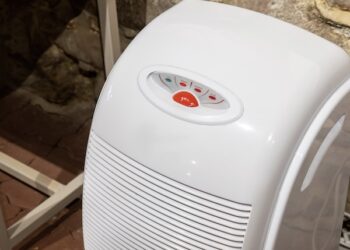Moisture Solutions for Basements: Protecting Your Home from Water Damage
A dry, well-maintained basement is essential for a safe, comfortable, and valuable home. Unfortunately, basements are prone to moisture issues, including high humidity, water seepage, and leaks, which can lead to mold growth, structural damage, and unpleasant odors.
Homeowners in Colorado and surrounding areas often face these challenges due to seasonal rain, snowmelt, and groundwater accumulation. Understanding the causes of basement moisture and implementing effective control measures is key to protecting your home. Learn about our basement finishing services.
Common Basement Moisture Issues
1. Water Seepage and Leaks
Water seepage typically occurs through foundation cracks, poorly sealed walls, or gaps around windows and doors. Even minor leaks can accumulate over time, damaging flooring, drywall, and personal belongings.
2. High Humidity
Basements often have limited ventilation, causing humidity levels to rise, especially in finished spaces. High humidity encourages mold, mildew, and musty odors, which can affect air quality and overall home health.
3. Condensation
When warm, humid air meets cooler basement surfaces, condensation forms on walls, pipes, and windows. Over time, this can lead to water damage and paint or flooring deterioration.
Solutions for Basement Moisture Control

Effective moisture control combines prevention, drainage, and humidity management. Professional contractors like Lucas Remodeling can provide tailored solutions for your basement.
1. Vapor Barriers
Installing vapor barriers on basement walls and floors helps prevent moisture from penetrating living spaces. These barriers, made of durable plastic sheeting or specialized coatings, reduce the risk of mold growth and protect finished surfaces.
2. Sump Pumps
A sump pump is an essential tool for basements prone to flooding or groundwater intrusion. Positioned in a sump pit, it pumps out accumulated water to prevent standing water and potential foundation damage. Modern sump pumps often include battery backups to ensure operation during power outages.
3. Proper Drainage Systems
Effective drainage prevents water from pooling around your foundation. Key components include:
- French drains to channel water away from the basement perimeter
- Grading and landscaping adjustments to slope water away from the house
- Gutter and downspout maintenance to ensure proper water flow
4. Dehumidifiers and Ventilation
Installing a basement dehumidifier helps maintain optimal humidity levels, reducing the risk of mold and condensation. In addition, improving ventilation through windows, vents, or mechanical systems ensures better air circulation and a healthier environment.
5. Foundation and Sealant Repairs
Cracks and gaps in walls or floors are common entry points for water. Sealing these areas with waterproofing compounds and repairing structural issues can significantly improve moisture control.
Why Basement Moisture Control Matters
Ignoring basement moisture can lead to serious long-term problems, including:
- Mold and mildew growth, affecting air quality and health
- Structural damage to walls, floors, and the foundation
- Warped flooring or damaged finishes
- Reduced home value and resale appeal
Proper moisture control protects your home, preserves your investment, and creates a safe, dry living space. Learn about our basement remodel services.
Contact Lucas Remodeling
Lucas Remodeling specializes in basement waterproofing and moisture control solutions across Colorado. From sump pump installation and vapor barriers to full drainage system upgrades, we ensure your basement stays dry, safe, and functional.
We complete projects quickly with minimal disruption, providing professional workmanship backed by a warranty for your peace of mind. Contact us today by phone or request a quote online, and let us help make your basement both beautiful and safe!